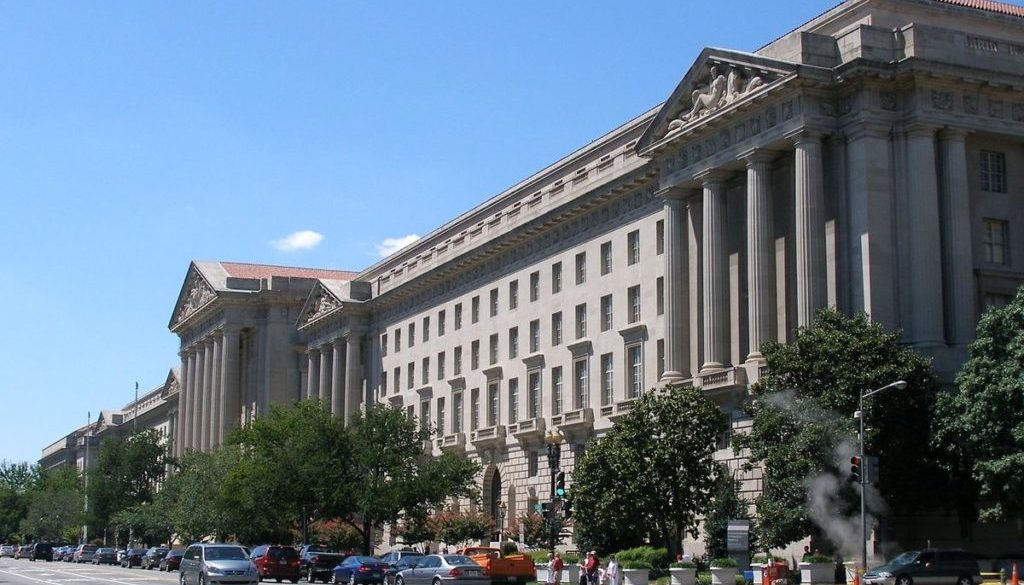House Committee Wants to Gut EPA
By Scott Slesinger, Natural Resources Defense Council
While the press concentrates on tweets and Russian assistance to the Trump campaign, the House Republicans continue their undercover assault on our environment and natural heritage. On Wednesday, July 11, 2017, the subcommittee responsible for funding EPA, the Department of Interior and related agencies, once again took a meat-axe to EPA and made deep cuts at the agencies responsible for our public parks and other public lands. The bill demonstrates the fix is in for those companies that want to exploit our public lands for drilling and mining.
The bill gives Administrator Scott Pruitt the tools to slash the professional staff. The bill gives polluters free reign by taking the “cops on the beat” and weaken the protections to our air, water, and land that EPA works to protect. The bill will undoubtedly put Americans at greater risk of polluted drinking water and toxic air.
Between 2010 and 2017, a period the country should have been concentrating on climate change and other insults to our environment, the Republicans controlled Congress cut the EPA 20%! The bill that was voted on in the subcommittee today adds another 7% cut from present levels severely limiting EPA’s ability to update the water standards for copper and lead, protect our air or set safe radiation levels.
Besides attacks on EPA and Interior’s budget the bill including unnecessary riders intended to further weaken environmental protections at the behest of giant corporations who want to socialize their costs with the public and keep their profits for themselves. For instance:
Sec 116 prevents the U.S. Fish and Wildlife Service FWS from fulfilling its obligations under the Endangered Species Act by disallowing FWS to issue or propose a rule to protect the greater sage grouse to help oil drillers.
Sec. 117 blocks efforts to protect endangered gray wolves in the continental United States by 2017 under the Endangered Species Act. This species is currently listed as endangered in most of the lower-48 states. A national delisting for wolves would reverse the remarkable progress the ESA has achieved for this species and once again put the gray wolf at risk of extinction.
Sec. 119 delists gray wolves in the Great Lakes and Wyoming from the Endangered Species Act and prevent judicial review of this action.
Sec. 407 allows the Secretary of Agriculture to rely on outdated forest plans, ignoring the reality that national forests are not being managed sustainably, nor taking into account additional considerations such as the increasing impacts of climate change.
Sec. 420 permanently prevents the EPA from regulating toxic lead in ammunition, ammunition components, or fishing tackle under the Toxic Substances Control Act TSCA or any other law.
Sec. 423 exempts livestock grazing permit renewals from environmental review.
Sec. 428 requires all biomass burned for electricity production to be considered to have zero carbon pollution despite the fact that emissions from wood biomass are often higher than those from coal. This language threatens the long-term health of forests by encouraging the burning of trees to generate electricity and worsens climate change by pretending climate-changing emissions don’t exist.
Sec. 431 would allow the EPA Administrator and the Secretary of the Army to withdraw the Clean Water Rule without accepting public input that is required under the Administrative Procedure Act of 1946. The Clean Water Rule, which adhered to APA requirements, was the result of extensive public engagement and scientific analysis. It is unconscionable that Members of Congress are now cutting out an exemption to longstanding transparency and good governance laws for the purposes of dismantling clean water protections.
Sec. 432 delays EPA’s latest health standards for ground-level ozone smog pollution for ten years, preventing Americans from even having the right to know if the air they breathe is unhealthy for ten years and severely delaying cleanup steps. The rider also would let corporations that apply for air pollution permits pollute at levels that are unsafe under national health standards.
Sec. 433 blocks EPA from requiring industries with a high probability of causing catastrophic damage by releasing toxics into the environment from carrying insurance to cover environmental damages they cause. This provision will leave the taxpayer with the bill for their negligence.
Sec. 434 would prohibit EPA from writing any rule that would require the largest industrial animal farms: Concentrated Animal Feeding Operations, or CAFOs to properly store, transport, or dispose of their wastes, including the hundreds of millions of tons of manure they generate annually. CAFO wastes contain dangerous pollutants that can increase the risk of birth defects, infant deaths, diabetes, and cancer. When not handled properly, CAFO wastes endanger drinking water sources and pose a particularly severe risk to rural communities reliant on well water.
Sec. 435 prevents implementation of the National Ocean Policy. The National Ocean Policy is a common sense policy that improves the way we manage our oceans, reducing duplicative efforts and conflicting government actions, and facilitates better coordination between federal, state, and local stakeholders.
Members of Congress, particularly Republicans, need to hear that the American public supports our natural heritage and our environment. Giving utilities, chemical companies and oil and gas companies—all important industries, but also risky businesses that can be more profitable if environmental standards are ignored—need to be held to a standard that does not jeopardize our public health or our natural heritage.

